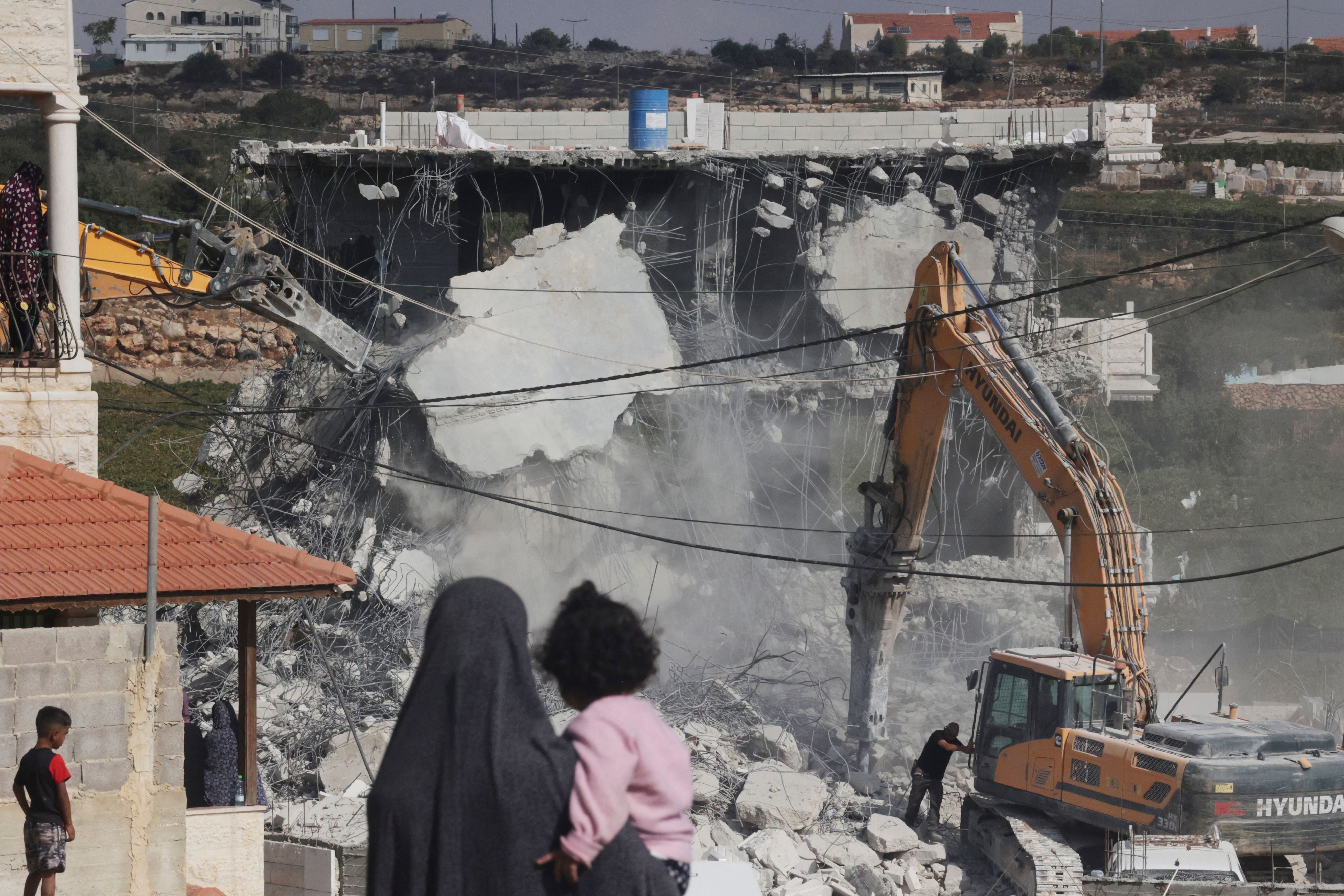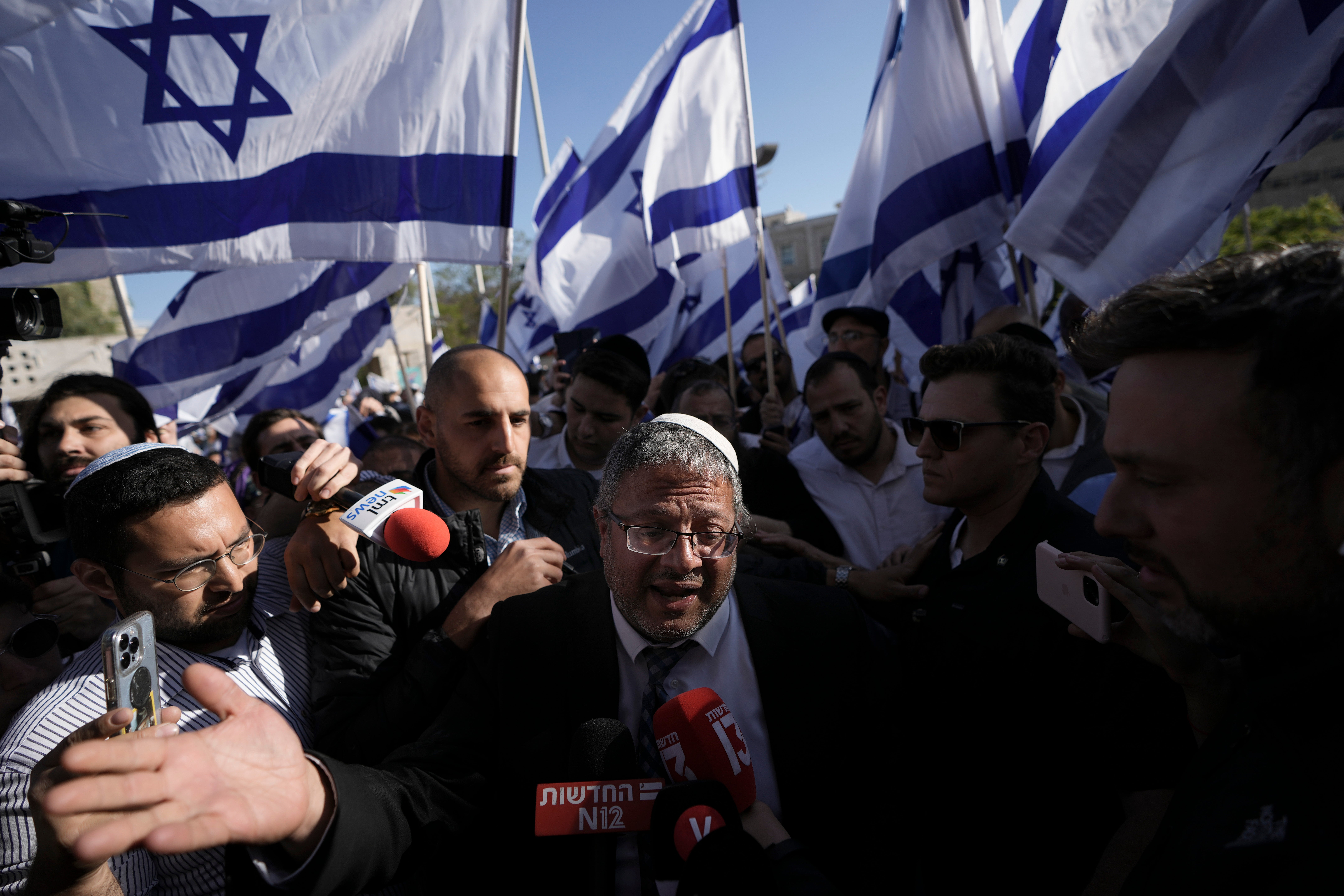We Palestinians are not shocked by the extreme direction of Israeli politics
This is a natural result of decades of unchecked settler colonialism in the form of political persecution, institutional violence, apartheid and ethnic cleansing

Your support helps us to tell the story
From reproductive rights to climate change to Big Tech, The Independent is on the ground when the story is developing. Whether it's investigating the financials of Elon Musk's pro-Trump PAC or producing our latest documentary, 'The A Word', which shines a light on the American women fighting for reproductive rights, we know how important it is to parse out the facts from the messaging.
At such a critical moment in US history, we need reporters on the ground. Your donation allows us to keep sending journalists to speak to both sides of the story.
The Independent is trusted by Americans across the entire political spectrum. And unlike many other quality news outlets, we choose not to lock Americans out of our reporting and analysis with paywalls. We believe quality journalism should be available to everyone, paid for by those who can afford it.
Your support makes all the difference.When Israeli citizens headed to the polls in their fifth general election in four years, we Palestinians were once again relegated to the stands, unable to do more than observe the kind of power that will rule over our lives next.
For five million occupied Palestinians in East Jerusalem, Gaza and the West Bank, our reality is that we are denied the right to vote for a government that impacts all aspects of our daily lives. Many Palestinians shrug off giving opinions on candidates,and are satisfied to say “they’re all the same”.
This is an understandable view, given how every Israeli government has pursued colonial policies. However, they are not all the same.
For the Palestinians, there were two possible results of the Israeli election: a government that would continue to entrench an oppressive system of apartheid, or a government that will amplify systematic violence against a colonised population, normalise Jewish supremacy and fast-track ethnic cleansing. It seems that the Israeli electorate made its choice, and the latter has emerged victorious.
In the months leading up to the election, both the ruling parties and opposition parties campaigned heavily to win the favour of the electorate.
On one the hand, outgoing premier Yair Laid and defence minister Benny Gantz have pursued a military operation dubbed “Break the Wave”, which has led to the UN warning that 2022 is likely to be the deadliest year on record for Palestinians in the West Bank – and October the deadliest month in the deadliest year. The governing coalition also launched an assault on the Gaza Strip in August, with 49 Palestinians killed over three days.

On the other hand, there is the rising star of Israeli politics, Itamar Ben Gvir, chair of the Jewish Power party. Ben Gvir is a Kahanist activist who had a picture of notorious mass murderer Baruch Goldstein hanging up in his home, and who, as a lawyer, has defended Jewish Israelis charged with terrorism and hate crimes – including the attack in Duma which killed three members of the Dawabshe family.
Ben Gvir himself has been charged eight times, including for “support to a terrorist organization”. In the lead up to the election, he brandished his gun in the face of Palestinians in Jerusalem, and did not spare a moment in inciting violence against residents of Sheikh Jarrah. He is now a kingmaker of Israeli politics.
Some Israelis are expressing shock at the apparently “sudden” rise of the extremist right-wing in this election. However, the signs have been there for years, and it is the mistake of Israelis who thought the situation in which Palestinians are systematically subjugated could continue without such developments. Today, 70 per cent of Jewish Israelis aged 18-24 identify as “right-wing”.

We Palestinians are not shocked or surprised by the extreme direction Israeli politics is taking. This is a natural result of decades of unchecked settler colonialism in the form of political persecution, institutional violence, apartheid and ethnic cleansing.
In this election, parties willing to address the occupation, Palestinian rights and freedom were relegated to the absolute margins (or did not make the Knesset at all). Meanwhile, the so-called centrists and right-wing parties all pandered to the increasingly right-wing electorate, promising to strengthen the settlement enterprise in the West Bank, and to consolidate a non-democratic Jewish nation state.
To keep up to speed with all the latest opinions and comment, sign up to our free weekly Voices Dispatches newsletter by clicking here
For decades, Israeli public institutions and courts have all sought to legalise and normalise the system of apartheid that governs the land. The Israeli state has violated international conventions, committed war crimes and enjoyed total impunity as the US and EU have continued to offer financial and diplomatic support.
Lacking any interest in reaching a political solution with Palestinians, it was only natural that proto-fascists would become the strongest camp in Israeli politics.
Whoever thinks positive change can come from within Israel’s elections is sorely mistaken. It is up to the rest of the world to stop normalising the abhorrent ideologies of ethnic supremacy we find prospering in Israel. The international community must stop financing apartheid at once, as all signs indicate it is moving in the direction of even more violence.
I do not wish to be given a choice between apartheid and ethnic cleansing; I only wish for the freedom of my people and for us to live in dignity with our rights fully guaranteed, here in our homeland of Palestine.
Jalal Abukhater is a Palestinian civil servant and writer, based in Jerusalem

Join our commenting forum
Join thought-provoking conversations, follow other Independent readers and see their replies
Comments